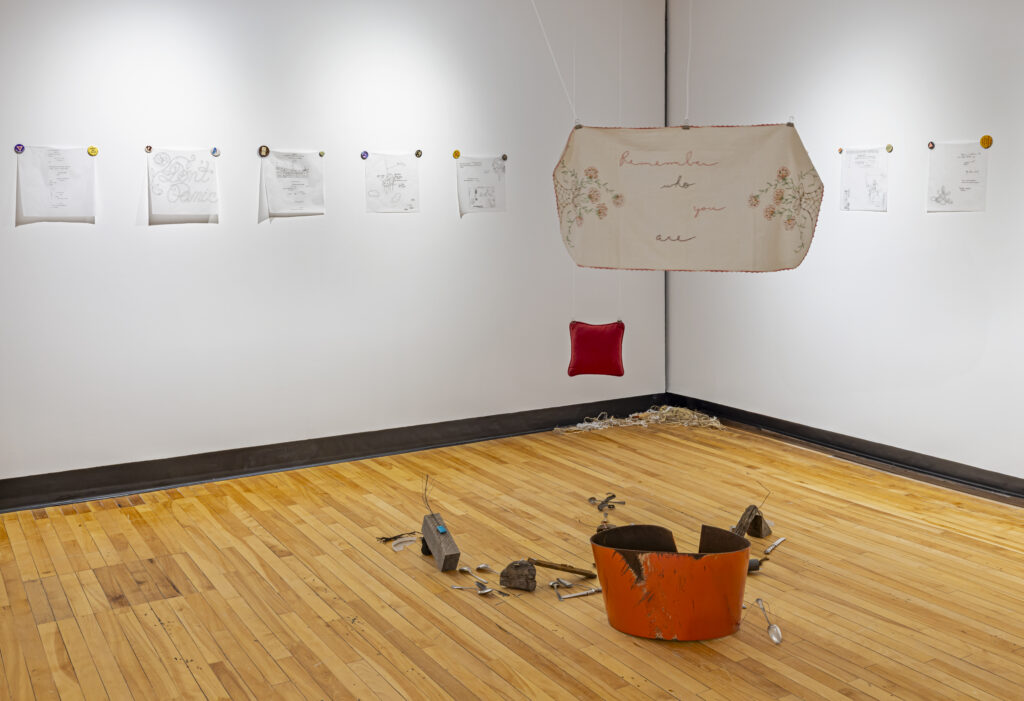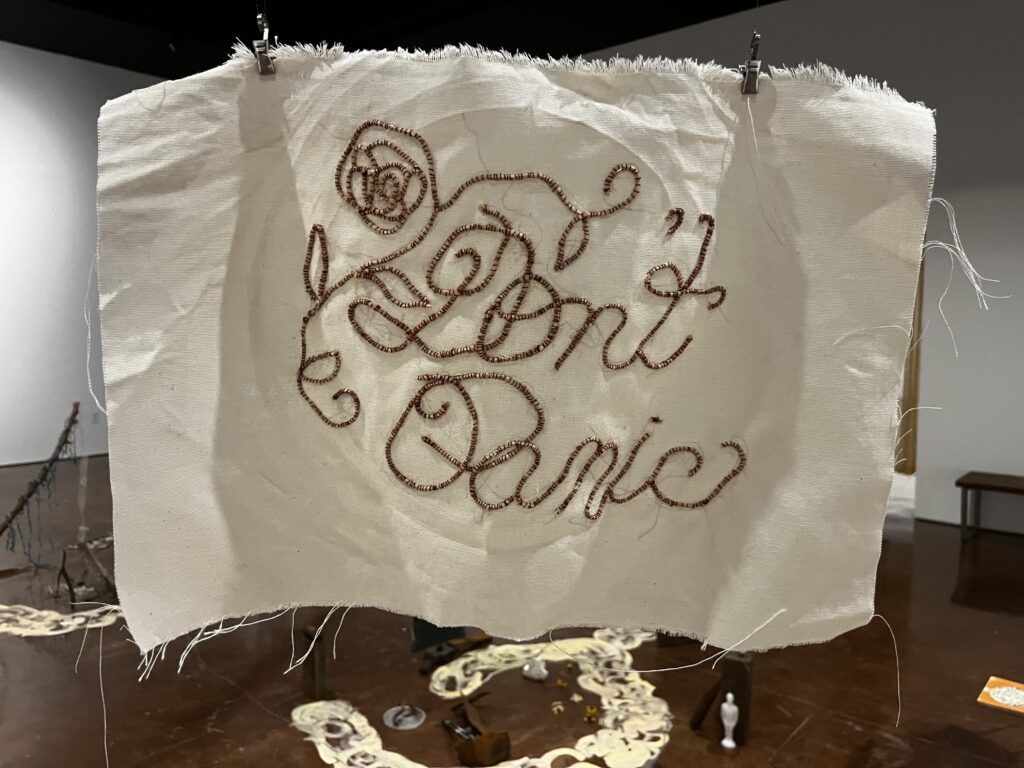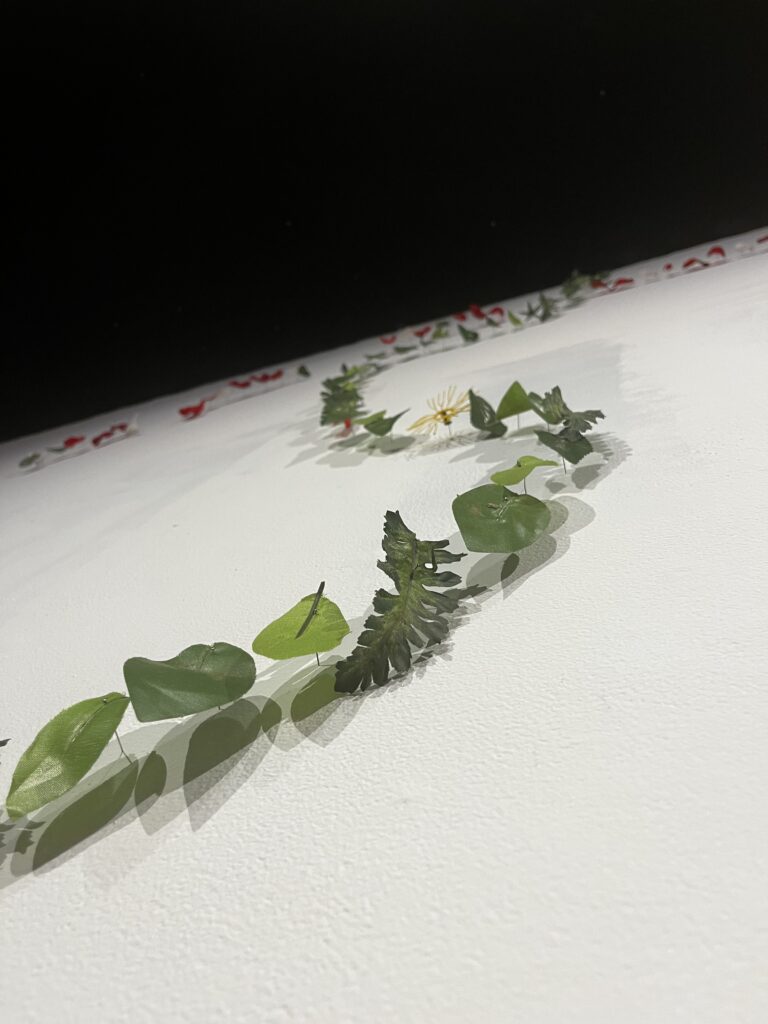Events
Upcoming Events
Unearthing Texas Histories
In this final event of the Humanities, Land, Sea, Space (HLSS) Initiative, COMM graduate student Valentina Aduen will reflect on her recent fieldwork with the descendants of freedom colonies in Crockett, Texas, who are dealing with the negative environmental impacts of pipelines running through property over which they have tenuous control. Dr. Amanda Mixon (Texas State University) will share their archival research on gay bars, community formation, racial dynamics, policing practices, cultural representations, and military suasion in San Antonio to highlight the ongoing need for further exploration and study of historic gay spaces across Texas. Invited artist JD Pluecker will give a lecture about her ongoing project "The Unsettlements" which traces the impacts of eight generations of her mainly German settler-colonial family in Houston and across so-called Texas by attending to site-specific histories of memory, silence, and memorialization. HLSS Initiative founder Dr. Emily Brady and current convener Dr. AJ Baginski will reflect on what the Initiative has made possible in terms of the Environmental Humanities at Texas A&M and elsewhere.
Schedule of Events:
Thursday, April 25th, GLAS 311
12:00 noon - Lunch available, Introduction and welcome
(AJ Baginski). Reflection on HLSS's origins and trajectory (Dr. Emily Brady), Recap of HLSS 2022-2024 (AJ Baginski)
Panel
12:45 - Valentina Aduen (Research presentation on recent fieldwork, 30 minutes)
1:15 - Dr. Amanda Mixon (Research presentation on published research, 30 minutes)
1:45 - Q&A from audience
Artist Lecture
2:00 - JD Pluecker (Artist talk and presentation, 40 minutes)
2:40 - Q&A from audience
Images of JD Pluecker's work
February 27, 2024 in GLAS 311
2pm to 4pm
Mayra Santos-Febres was born in Carolina, Puerto Rico. She is an author, professor, and researcher. She studied literature at the University of Puerto Rico (UPR) and has a doctorate from Cornell University. She is the coordinator of the Racial and Afrodiasporic Studies Program at the University of Puerto Rico. She has won numerous international awards and recognitions. She has published the poetry collections Anamú y manigua (1990), El orden escapado (1991), Boat People (1994), Tercer Mundo (2004), Lecciones de renuncia (2021) and Huracanada (2018). Her essay book Sobre piel y papel (2005).
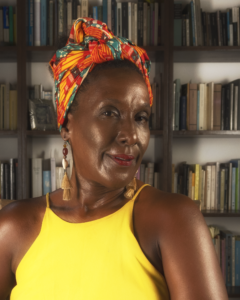
February 29, 2024 in GLAS 311
In collaboration with faculty and graduate students from English, Africana Studies, GLAC, and Communications, this Spring the HLSS Initiative is organizing a 1-day symposium called “AfroLatinx Life and Writing” to bring together AfroLatinx artists and AfroLatinx studies scholars at both the senior and early-career phase. This event follows up the Fall event we supported, “Landscapes of Belonging” which provided poetry workshops from Raina J. León and Janel Pineda and a recital and open mic poetry space for TAMU faculty, students, and community members. This Spring symposium will go beyond scholarly panels. We plan to create a space for scholars and artists to be in conversation. Many of our invitees refuse the rigid division between scholarship and creativity. The event will include a conversation between scholars and artists about the art/scholarship divide, a recital/public reading, a panel on “The State of AfroLatinx Life and Writing,” and a discussion of Regina Mills’ forthcoming book, Invisibility and Influence: A Literary History of AfroLatinidades (Spring 2024 from University of Texas Press). For more information and a list of co-sponsors, visit tx.ag/HLSS.
Itinerary:
9:00am: Breakfast
9:30am: AfroLatinx Life & Writing Symposium featuring
“The State of AfroLatinx Life & Writing” Panel
Jennifer Gómez Menjívar (UNT), Keishla Rivera-López (Princeton), and Omaris Z. Zamora (Rutgers)
11:30am: Roundtable Discussion
about the forthcoming book by Regina Mills (ENG)
1pm: Lunch
2:30pm: Keynote Lecture
Mayra Santos-Febres (UPR-Río Piedras)
“Afro-Latinx Poetry: an Invisibilized Canon”
3:45pm: Poetry Recital
tabling by Abode Press (@abodepress)
5:00pm: Dinner
ADDITIONAL SUPPORT PROVIDED BY:
The Carlos H. Cantu Hispanic Endowment
A TAMU Academy for Visualization & Performing Arts Arts Engagement Grant
The Glasscock Center’s Humanities: Land, Sea, Space Initiative
The English Department’s Geographies of American Literature Initiative
The MSC Woodson Black Awareness Committee
The Race & Ethnic Studies Institute
September 21, 2023
11:00am-1pm (Workshops) in GLAS 311
3:00pm-6pm (Recital) in the Rudder Forum
Visiting writers Janel Pineda and Raina J. León will offer creative writing workshops for registered participants and will headline a poetry recital later in the day. Workshop participants will be invited to perform their work and receive copies of the visiting writers’ books at the afternoon recital. With the support of an AVPA Arts Engagement Grant participants’ performances will be published in a multimodal format in an online museum space.
Registration link for the workshops and the afternoon recital can be found here. Registration for the workshops will be capped at 40 participants.
This event is co-sponsored by the MSC Woodson Black Awareness Committee, Race & Ethnic Studies Institute, Africana Studies, the Geographies of American Literature (ENGL), and supported by an AVPA Arts Engagement Grant.
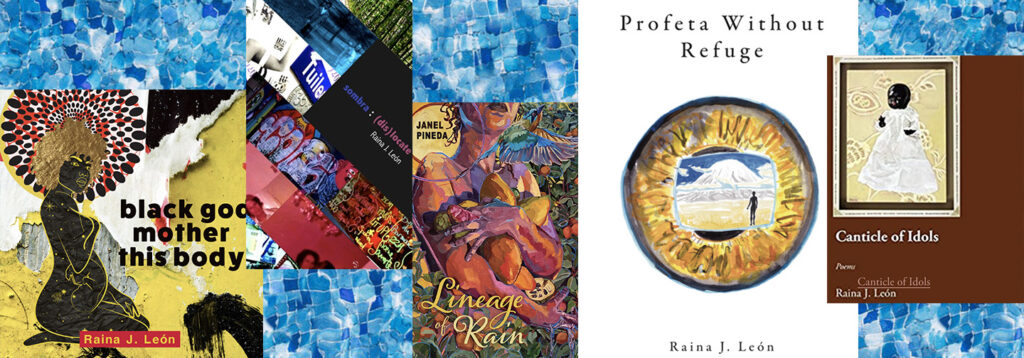
October 19, 2023
"Taxidermy and the Environment in Cristina García's The Agüero Sisters"
Fernando Varela, Texas Lutheran University
Respondent: Emily Johansen (ENGL)
9:30am - 11:00am
GLAS 311
Dr. Adam Rosenthal's Seminar Discussion "French Thought and the Problem of Life"
Clarke & Varela
12:45pm - 2:00pm
HEB 137
"Climate Gaia"
Bruce Clarke
Respondent: Raul Carrillo Covarrubias (PHIL)
5:30pm - 7:30pm
GLAS 311
Conceiving of Earth Surface, Skin and System
Supported by a GCHR Symposium and Small Conference Grant, Co-sponsored by GLAC and the Humanities: Land, Sea, Space Initiative
May 4, 2023
10 am-6 pm
GLAS 311
View the schedule below
This symposium will bring together early career scholars engaged in cutting-edge work on Latin American literature, art, thought, and culture to consider the relationship between environmental, cultural, national, and historical contexts and engage with the Texas A&M Community.
Panelists:
Miguel Gualdrón Ramírez, University of North Texas
Title: Why is the World so Beautiful? Robin Wall Kimmerer and Édouard Glissant on Aesthetic, Environmental Resistance
Bio: Miguel Gualdrón Ramírez (he/they) is currently the Assistant Professor in the Philosophy and Religion Department at the University of North Texas and will join the Philosophy Department at the University of Oregon in the Fall of 2023. His research and teaching approximate the intersection between Latin American/Africana decolonial philosophy that occurs in the Americas, and how this entanglement contributes to understanding gender-race constructions under coloniality as well as the relations between colonized communities across the continent. The main sources for these investigations are political and aesthetic theories and practices that critique colonial forms of self-understanding and expression and contribute to new epistemologies of resistance. Miguel is currently working on two book projects, Decolonial Aesthetics: Theory and Praxis from the Americas (under contract with Indiana University Press), and Fundamentals of Anti-Blackness in Latin American Thought.
Carlos Colmenares Gil, University of Indiana, Bloomington
Title: No Metaphors for the Country: the Anti-Landscape of Igor Barreto
Bio: Carlos Colmenares Gil’s work is concerned with the relationship between Latin American Thought (broadly understood) and continental philosophy, anthropology, and psychoanalysis. His main geographical areas of research are the continental Caribbean and Brazil. Currently, he is working on a project focused on poetry, landscape, and class in contemporary Venezuela where he studies the work of Igor Barreto, Yolanda Pantin, and Armando Reverón, among others. He is also articulating a second project on experimental novels and private life in Brazil and Venezuela in the twentieth century.
Noraeden Mora Mendez, University of Southern California
Title: In Spite of Catachresis: to Think For/From the Place We Call Venezuela
Bio: Noraedén Mora Méndez is a doctoral candidate in the Comparative Studies in Literature and Culture program (Comparative Literature track) at USC. She completed undergraduate studies in Psychology (UCAB), and Psychoanalytic training (UCV), in Caracas, Venezuela; holds an MA in Cultural and Critical Studies from Birkbeck, University of London. Her interests broadly include the intersections between philosophy, literature, and visuality, with a focus on Latin America and specifically on Venezuela. Her approach is transdisciplinary and investigates experimental artworks and writings that cross the borders between genres, languages, media, and/or disciplines. Her doctoral dissertation “Untimely Passages: Experiments in Venezuelan Literary and Visual Culture” explores experimental or marginal arts to think about Venezuela nonlinearly and pose a larger question about spatiotemporality, identity, and history. She has published articles in Spanish and English about cinema, art, translation, and literature. She has published non-academic texts in Latin American and German magazines, is co-editor of the independent press Flores degenerades (based in LA and Berlin), and co-authored manifesto degenerado published in 2022.
Carolina Díaz, Wesleyan University
Title: “The Book of Memory”: The Atacama Desert and Air’s Entanglements.
Bio: Carolina A. Díaz works at the intersection of ecology and Latin American culture, in particular, Contemporary Chilean art, history, and politics from Pinochet’s dictatorship era onwards. Her current book project “Coexisting with the Elements: Chile’s Ecological Imagination” is a feminist, decolonial, and materialist exploration of aesthetic practices which propose a different modality of being in the world with humans and more-than-human others. She recasts the figure of the elemental roots, -earth, water, fire, and earth- as fields of meaning with which to read what she conceives as a historical continuum of unacknowledged violence against marked bodies and against more-than-human others, sentient and otherwise. She is an assistant professor in the Romance Languages and Literatures Department, Latin American Studies, and Feminist, Gender, and Sexuality Studies at Wesleyan University. Her work has appeared or is forthcoming in Revista Iberoamericana, Chasqui, Estudios de Género, A Contracorriente, The Journal of Latin American Cultural Studies, and ISLE: Interdisciplinary Studies in Literature and Environment, and Doing Transdisciplinary Feminism: Re-working Theory, Method, and Practice.
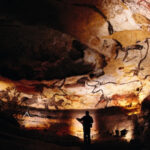
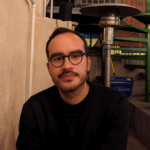


Schedule
10:00 am - breakfast, coffee, introductory remarks
10:30 am - 11:45 - Carolina Díaz
Title: “The Book of Memory”: The Atacama Desert and Air’s Entanglements
Respondent: Ege Selin Islekel (TAMU Philosophy)
12:00 - 1:15 - Carlos Colmenares Gil
Title: No Metaphors for the Country: the Anti-Landscape of Igor Barreto
Respondent: Adam Rosenthal (TAMU GLAC)
1:15 - 2:30 lunch
2:45 - 4:00 - Miguel Gualdrón Ramírez
Title: Why is the World so Beautiful? Robin Wall Kimmerer and Édouard Glissant on Aesthetic, Environmental Resistance
Respondent: Don Deere (TAMU Philosophy)
4:15 - 5:30 - Noraeden Mora Méndez
Title: In Spite of Catachresis: to Think For/From the Place We Call Venezuela
Respondent: Maddalena Cerrato (Bush School, International Affairs)
The Texas A&M community is invited to participate in the Glasscock Center’s Spring 2023 hybrid reading group, Latinx and Latin American Environmentalisms. This monthly series is focused around emerging scholarship on Latinx and Latin American approaches to environmental problems. Participation is free and open to the public.
Zoom details (recurring meeting):
Meeting ID: 967 7526 6983
Zoom link
March 8, 2023 6pm
GLAS 311
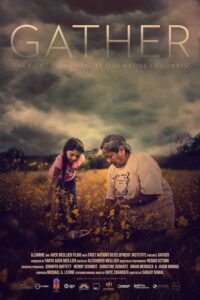
Gather is an intimate portrait of the growing movement amongst Native Americans to reclaim their spiritual, political and cultural identities through food sovereignty, while battling the trauma of centuries of genocide.
Gather follows Nephi Craig, a chef from the White Mountain Apache Nation (Arizona), opening an indigenous café as a nutritional recovery clinic; Elsie Dubray, a young scientist from the Cheyenne River Sioux Nation (South Dakota), conducting landmark studies on bison; and the Ancestral Guard, a group of environmental activists from the Yurok Nation (Northern California), trying to save the Klamath river.
Gather film screening co-sponsored with Indigenous Studies Working Group
Wednesday, October 12, 2022
11AM - 1PM
GLAS 311
Free and open to the public
Registration is appreciated
Lunch will be provided
Description: Williston Chase is a PhD candidate in Comparative Literature at UC Irvine. Working between Latin American Studies, Black Studies, and European intellectual history, he researches the philosophical legacy of the transatlantic slave trade in the Americas. He is the co-director of University and State, a research cluster in the Humanities Center at UCI, and co-PI of a project on Latin American poststructuralism at the Instituto de Filosofía, Pontificia Universidad Católica de Valparaíso in Chile, where he was a Fulbright scholar in 2021-2022. His talk will draw on his dissertation, “Institutional Alibis: Chilean Letrados, Black Study, and the Stakes of Thinking,” in which he reads the statesmen and administrators often presumed to establish and safeguard an exceptional institutional order in 19th century Chile through theories of historical possibility in Black Studies, thus unfurling the epistemological (mis)adventures of these progressive lettered elites and staging the problematic historicity of racial slavery in the Southern Cone at the limits of Latin American republican thought.
Guest lecturers:
Williston Chase
ABD, Comparative Literature UCI
Fulbright scholar 2021-22, Pontificia Universidad Católica de Valparaíso
Alberto Moreiras
Professor of Hispanic Studies
TAMU
Free and open to the public
Limited seating | Registration required
Meal provided
September 21, 2022
6:00 - 9:00 PM
The Queen Theatre
110 S Main St, Bryan TX
Filmmaker Patricio Guzmán’s latest documentary explores how the Andes have shaped the culture and lives of Chileans who live between the mountains and the sea. The impact of the 1973-1990 dictatorship on the artists and writers interviewed in the film also looms over contemporary Chilean politics, and makes the film a study in the topography of memory.
Facilitator: Dr. Don Deere, Visiting Assistant Professor | Philosophy
Don T. Deere is Visiting Assistant Professor of Philosophy in the Philosophy Department and Visiting Scholar in the Melbern G. Glasscock Center for the Humanities at Texas A&M University. His work centers on Latin American and Latinx Philosophy, Decolonial Thought, and Continental Philosophy. His book, The Invention of Order: On the Coloniality of Space, is forthcoming with Duke University Press.
March 31-April 1, 2022
To view recordings of this event, please visit our media page here.
This is a jointly organized conference between the Global Health Humanities and the Humanities: Land Sea Space initiatives at the Glasscock Center.
For further information about the conference visit the Global Health Humanities webpage
This series of events explores research in the humanities and other disciplines concerning the relationship between people and plants. The series is hosted by the Glasscock Center’s Humanities: Land Sea Space initiative. During 2021-2022, LAND features as our main theme and, through it, we explore the deep, foundational role that plants play in the ecosystems that support life on Earth. These events highlight the variety of human-plant relationships—from individual relationships like those experienced in a garden, to broad, societal relationships and dependencies on land like agriculture and forestry—and how these relationships are expressed through different worldviews and contexts.
Humanities & Science Exchanges: Human-Plant Relationships
Thursday, October 21, 2021
Leach Teaching Gardens Pavilion, Texas A&M campus
4:15-6:15pm
Please RSVP at tx.ag/PlantsRSVP
Speakers: Dr. Allison Hopkins (Department of Anthropology, Texas A&M) & Dr. Kenneth R. Hurst (Landscape Architecture and Urban Planning, Texas A&M)
4:15 PM: Opening and Introductions
4:30 - 5:15 PM: Discussion between speakers
5:15 - 5:40 PM: Q&A
5:40 PM: Closing Remarks
5:45 - 6:15 PM: Attendees tour the gardens
Allison Hopkins
Dr. Hopkins is a medical and ecological anthropologist specializing in interdisciplinary research on the connections between globalization and/or social relationships and human health. Specifically, she focuses on understanding the knowledge people have about local resources, how that knowledge relates to their behavior, what factors are associated with variation in their knowledge and behavior, and ultimately how that relates to health. She researches these issues in varying contexts, with different populations, types of knowledge and factors at play.
Kenneth R. Hurst
Dr. Hurst’s research seeks to document evidenced-based support for the contribution individual park elements, and accessible design makes toward increased levels of use and physical activity in urban park environments. He holds BSLA and MLA degrees and a Ph.D. at Texas A&M University (2016). He currently is full-time faculty at Texas A&M, serves as co-chair of the ASLA Children’s Outdoor Environments PPN, and maintains an active consultancy in Parks and playgrounds.
If you like this series of events, you may also be interested in Growing Harmony, an original work of location-aware music for the Teaching Gardens which has been commissioned by AVPA.
Exploring People-Plant Relationships in the Arts and Philosophy
Friday, November 5, 2021
Zoom Webinar | Register at tx.ag/PlantsRegistration
10:00am - 1:15pm Central Time
This webinar, hosted by the Glasscock Center for Humanities Research at Texas A&M University, features talks and discussion by artists and philosophers exploring people-plant relationships in gardens and the rural landscape.
10:00: Dr. Emily Brady (Texas A&M), Opening remarks
10:10-10:50: Dr. Isis Brook (Crossfields Institute) | “Engaging with the Plant Realm”
10:50-11:10: Q&A
11:10-11:20: Break
11:20-12:00: Dr. Reiko Goto and Dr. Tim Collins (Collins & Goto Studio) | “Ancient boglands and the Irish peat industry: Does Culture Mitigate Ecocide?”
12.00-12.20: Q&A
12:20-12:30: Break
12:30-12:50: Dr. Marcello Di Paola (University of Palermo), Respondent
12:50-1:15: Closing discussion
Click here to visit the event website.
About:
The concept of Anthropocene, popularized in 2000 by Paul Crutzen (Nobel laureate in Chemistry, 1995), has been an influential framework to understand environmental issues as symptoms of a new geological epoch – a period fundamentally marked by the material presence of human beings on Earth. Commonly mentioned issues related to the Anthropocene include changes in the water cycle, acidification of oceans, and extreme meteorological phenomena. Noise, on the other hand, is only rarely mentioned. In a 2011 report, the World Health Organization/Europe announced that the disease burden caused by environmental noise was second only to air pollution. According to the study, at least one million healthy life years were lost every year from traffic-related noise in western Europe. But noise pollution affects other living organisms as well: the dramatic increase in transportation networks and natural resource extraction makes noise a problem of planetary proportions. Grinding away (day and night through air, land, and sea), transportation and resource extraction make up the soundscape of the Anthropocene.
This virtual seminar brings together artists and scholars from diverse academic fields to highlight how noise can provide a dynamic, polyphonic, and multi-species understanding of our environment.
Organizers: The seminar was organized by Dr. Leonardo Cardoso (Department of Performance Studies, Texas A&M University), with co-organizer Dr. Ana Širović (Department of Marine Biology, Texas A&M University Galveston). Please contact Dr. Cardoso if you wish to learn more about this event.
Noise in the Anthropocene is sponsored by a Glasscock Symposium and Small Conference grant.
Date: Thursday, April 15, 2021
Time: 5pm-6pm Central Time
Zoom Webinar | Free & Open to the public.
About:
This event marks the launch of a new, occasional series, "Humanities-Science Exchanges," at the Glasscock Center. The aim of the series is to encourage connection and collaboration between the humanistic and scientific disciplines. These events invite scholars to engage with the same topic - from their own fields or interdisciplinary perspectives - in the spirit of exchanging ideas and opening up to a variety of approaches.
Our first exchange focuses on the relationship researchers have with their nonhuman subjects. What are the ethics of our field methods? How do we decide our field methods? What do we consider before going out into the field? How do we view our relationships with our subjects and the surrounding ecosystem? Alexandra Sacco and Victoria Green will discuss these questions and how they pertain to their corresponding fields of research.
Speakers:
Victoria Green
PhD Student, Department of Philosophy, Texas A&M University
Alexandra Sacco
PhD Student, Department of Biological Anthropology, Washington University, St. Louis
Chair:
Dr. Emily Brady
Director, Glasscock Center for Humanities Research
Professor of Philosophy, Texas A&M University
As part of the Glasscock Center’s Humanities: Land Sea Space initiative, this series of virtual events explores issues concerning environmental justice, energy, community, climate change, and forms of resilience in coastal areas in Texas and beyond. We are collaborating with the Hazard Reduction and Recovery Center to present this series.
Seadrift (2019) film screening
Directed by Tim Tsai and winner of numerous awards, including the 2019 Texas Visionary Award and Best Documentary feature at the Indie and Foreign Film Festival 2019.
“In 1979, a Vietnamese refugee shoots and kills a white crab fisherman at the public town docks in Seadrift, TX. What began as a dispute over fishing territory erupts into violence and ignites a maelstrom of boat burnings, KKK intimidation, and other hostilities against Vietnamese refugees along the Gulf Coast. Set during the early days of Vietnamese arrival in the U.S., Seadrift is a feature documentary that examines the circumstances that led up to the shooting and its dramatic aftermath, and reveals the unexpected consequences that continue to reverberate today.”
https://www.seadriftfilm.com/watch
Thursday, October 22, 2020 | 5:00-6.30pm Seadrift film: Discussion and Q&A with Directors
Event Flyer (pdf)
Chair: Emily Brady (Glasscock Center/Philosophy, Texas A&M)
Tim Tsai, Seadrift Director
Thao Ha, Seadrift Associate Director and Professor of Sociology, MiraCosta College
Click here to view the recorded event.
Wildlife refuge near refineries on gulf coast.
Friday, October 30, 2020 | 12:00-1:30pm Coastal Communities and Justice Roundtable
Event Flyer (pdf)
Chair: Michelle Meyer (Director, Hazard and Reduction Recovery Center, Texas A&M)
Deidra D. Davis (Landscape and Urban Planning, Texas A&M)
Clare Palmer (Philosophy, Texas A&M)
Carlee Purdum (Hazard Reduction and Recovery Center, Texas A&M)
Joy Semien (Urban and Regional Science/HRRC, Texas A&M)
Click here to view the recorded event.
Friday, November 6, 2020 | 1:00-2:30pm
“Coastal communities, major environmental change, and inherent resilience: insights from the Fukushima coast”
Event Flyer (pdf)
Leslie Mabon (Marine Social Science, Scottish Association for Marine Science-University of the Highlands and Islands)
Chair: Emily Brady
Dr. Mabon's talk will be based on this recently published paper.
Click here to view the recorded event.
These events are presented by the Glasscock Center's Humanities: Land Sea Space initiative and the Hazard Reduction and Recovery Center at Texas A&M University.
In 2020/2021, HLSS is partnering with Rice University’s Center for Environmental Studies. We have invited them to our virtual events, and we are encouraged to attend “Planet Now!” a series of virtual lectures and conversations on such topics as: sustainable design, climate justice, Green New Deals, and ecologies of the Global South.
Sunday, February 9th, 6:00-9:00pm
Geren Auditorium (ARCB 101, Langford Building)
Dr. Elena Past (Wayne State University), “Aeolian Archives: Volcanic Ecocinema in the Mediterranean Sea” (Co-Sponsored Event)
Monday, February 10th, 3:30-5:00pm
Glasscock 311
Dr. Past is the author of: Italian Ecocinema. Beyond the Human (2019), and co-editor of: Italy and the Environmental Humanities: Landscapes, Natures, Ecologies (2018) and Thinking Italian Animals: Human and Posthuman in Modern Italian Literature and Film (2014).
These two events have been organized by Dr. Fabiana Cecchini and are co-sponsored with the Department of International Studies.
November 7-8, 2019
In tandem with urgent calls for the protection of oceans, seas, and coastal communities from the effects of global warming and pollution, humanities and humanistic social science disciplines have been experiencing an ‘oceanic’ or ‘blue’ turn. Recent work in history, literary studies, philosophy, cultural geography, anthropology, communication, and the arts has produced a vibrant body of research exploring relationships between marine spaces, species, and people. New conversations have emerged between the humanities and the natural sciences, sparking imagination and critical engagement with respect to issues and topics marginalized by land-based scholarship. This symposium seeks to foster cross-disciplinary conversations among faculty, invited speakers, and students at Texas A&M, as well as the broader community, with respect to the histories, poetics, and conservation futures of the planet’s oceans.
April 25, 2019, 12:00 -1:30 PM
Glasscock 311
Please join us for our first lunchtime meeting in the new Glasscock Research Lunch Series. This meeting will focus on the interdisciplinary Glasscock Center initiative, Humanities: Land Sea Space. Please come prepared for a discussion about two readings related to ideas central to the initiative, which you can find here and here.
All welcome! Lunch will be provided; please RSVP to: glasscock@tamu.edu
December 7, 2018
Melbern G. Glasscock Center for Humanities Research
Glasscock Building, Room 311, Texas A&M University

Mayra Santos-Febres
New recording available!
Mayra Santos-Febres (UPR-Río Piedras) delivered a keynote lecture, “Afro-Latinx Poetry: an Invisibilized Canon,” at the February 29 AfroLatinx Life & Writing Symposium. Access the video below.

